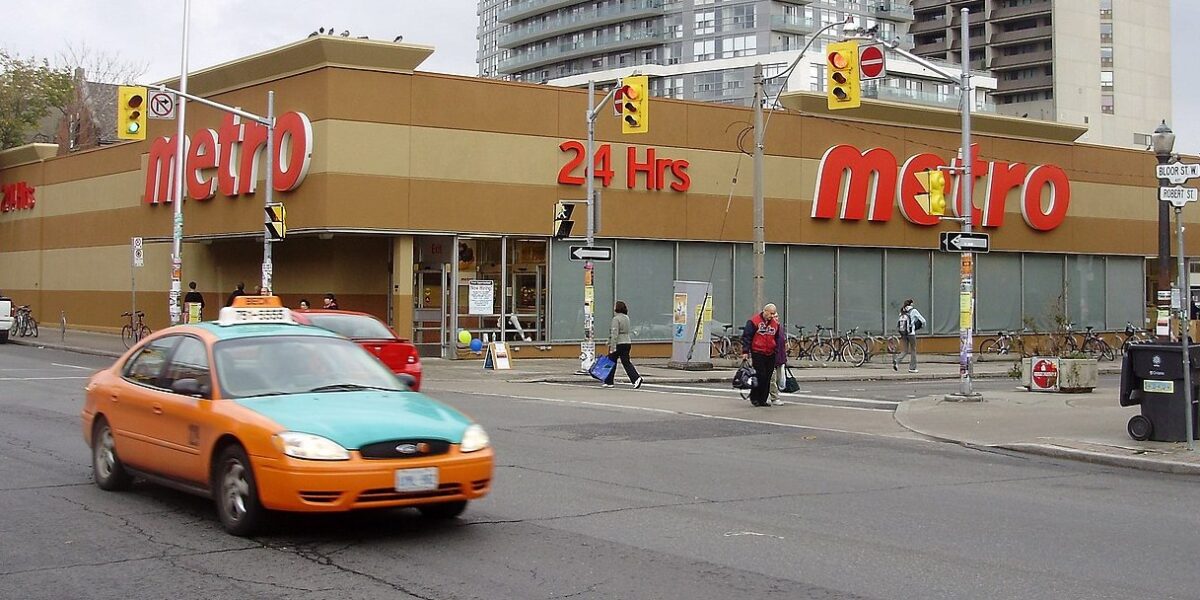Class conflict, in the classical sense, never really goes away; it just momentarily recedes. Many of the local supermarkets are on strike now and their owner, Metro, has wisely closed them, perhaps knowing shoppers will be sympathetic to the strike, even if it’s a pain to switch stores, after learning where everything is so you can zip briskly through.
Back when I was organizing workers into unions, I don’t recall ever signing anyone up solely because they wanted more money. It was always that they (also) wanted a voice, or to stand up, or stick it to their smarmy bosses. And when it came time to go on strike, it wasn’t solely for money; it was (also) justice and fairness. More money was (also) a way to achieve other goals.
The grocery strikers voted down the first deal negotiated by their leaders, largely, they said, because it didn’t restore the “hero pay” of $2 an hour they got in the first phase of the pandemic, which was then abruptly cut off. It’s an apt term for coming to work on iffy public transit, coping with masks all day, plus BS from some customers — all before there were vaccines — while others were allowed to work from home.
We forget how it was then: not knowing if COVID was transmitted by air or surface to surface. You could go into hospital, like my friend did, catch it, and die there. Heroic indeed. Yet, today they often find they can’t afford to shop where they work, while their CEO made $5.4 million last year, up 6.8 per cent. In what non-cartoon universe does that sound right?
Note also that this is a stunning model of democracy, at a time when democracy elsewhere in our world is shrinking. Where else do “the people” get to vote on everything their elected leaders put forward in their name, instead of being told to walk away and come back in four years to cast another vote?
Yah, but what about inflation? To cover the cost of letting Metro workers shop where they work, won’t Metro have to raise prices? Not necessarily. Metro made nearly $1 billion profit last year. Why not give it to workers instead of execs? Thirteen U.S. CEOs make more than 1,000 times the median salaries of their workers. The average is 400 to 1. In 1965, it was 20 to 1. Try thinking outside that box.
Anyway, if you gave out a medal, who takes it back when the war’s over?
Quick but not bright
That’s not a bad descriptor of our species. I think it’s Irish in origin, though I haven’t been able to trace it. It’s for somebody mentally impressive and amusing yet who perversely manages to miss the point. I mean, how can you witness those “unprecedented” wildfires, or breathe their smoke, and not draw a climate connection?
We’re so intellectually impressive. We’ve done things incommensurate with other species, like creating artificial tools and complex institutions. Yet we’re incapable of focusing on species-destroying phenomena like climate change, though it’d be soluble with few more mental resources than those used in inventions like the internet or refrigeration!
At the moment, politicians like Florida governor and U.S. presidential hopeful Ron DeSantis and U.K. PM Rishi Sunak are withdrawing from the consensus on net zero, out of political calculation. That’s a clear case of quick but not bright. If you poll normal people, they tend to put climate far down their list of priorities, but it’s more understandable.
One per cent of Spanish voters before their recent election, prioritized climate. But it you’re drowning in the ocean, your priority is getting rescued, not lowering the sea level. Someone has to figure out how to do both, and offer voters that choice: fix the climate without decimating their families’ lives.
The tech exists to do both. The financial resources also exist, if they’re modestly redistributed and the only ones to suffer (mildly, even then) would be the excessively rich. PRESTO, we’re back at the grocery workers’ strike!
This column originally appeared in the Toronto Star.



